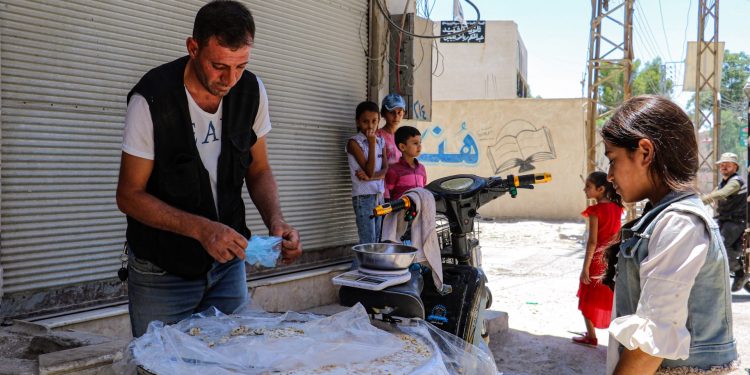Sugar syrup, Saponaria, and peanuts are the ingredients of the sweets recipe that Waleed Baqouni has repeated for 15 years, to make the Halva fostoukiah.
His only concern is to maintain his profession and his name, which has become known in some towns of Rural Damascus, while his priority is to afford his family, which is expecting a newborn.
In Erbin (Rural Damascus), Waleed (39 Y) lives with his wife and four children, although he did not leave his hometown during the crisis, his life and career were greatly affected due to a leg injury, mobility difficulties, and difficulties in selling his goods. However, at the beginning of 2020, the Syrian Arab Red Crescent grant which included raw materials helped him remake Halva.
“The grant has assisted me increasing productivity, my sales went up between 25 and 30 KG per day, and up to 70 KG on Fridays, at that time my income helped me repair my family’s house and move in, afford for my children’s needs, and buy a new electric bike to sell Halva”. Said Waleed.
Two years after receiving the grant, the Halva maker says that prices rise due to increases in production costs, such as raw materials (sugar and peanuts), whereas the demand on Halva decreases under the current difficult economic situation where most families have other priorities. Moreover in summer, while the needs of his family are growing and his physical ability limits his movement over time.
These changes worry Waleed, but he actively wakes up every day at half past five a.m. to make Halva, cool it, and sell it, clinging to the profession he started as a worker, and now he has his own business. “All I need is new support” he added.
With support from the International Committee of the Red Cross, Waleed is one of 460 people who received the livelihood grants allocated to people with amputees in Rural Damascus during 2020 and 2021.


